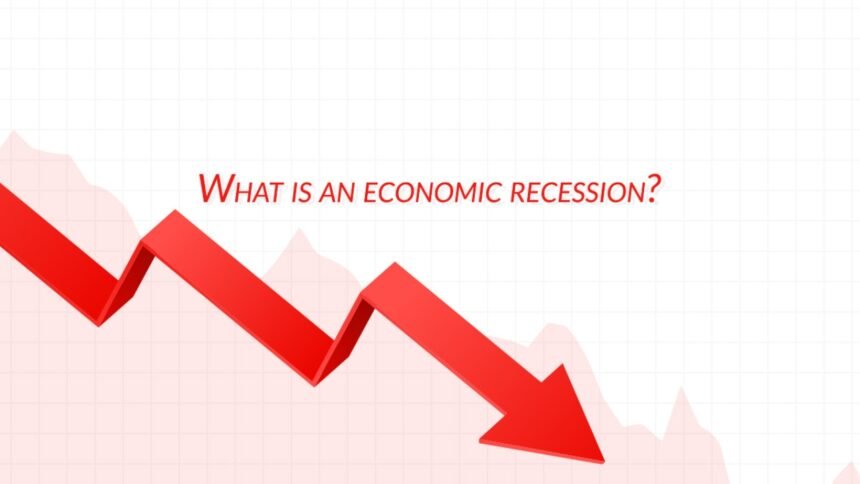Economic turmoil is a term that conjures up concern and confusion for many, especially in times of financial instability. From rising inflation to sudden market crashes, financial disruptions can create significant challenges for individuals, businesses, and entire nations. In the United States, we’ve witnessed firsthand the complexities that come with economic fluctuations. As these shifts continue to affect our lives, it becomes imperative to understand the causes, consequences, and strategies for navigating through them. This guide explores the core elements of economic turmoil, offering insights into how Americans can manage their finances during uncertain times.
What is Economic Turmoil?
At its core, economic turmoil refers to periods of significant instability or disruption in the economy. This may manifest in various forms, including severe inflation, high unemployment rates, recessions, or stock market crashes. These disruptions not only affect national economies but also have a profound impact on people’s financial well-being.
Economic turmoil can arise from several factors. Some of the most common causes include political instability, changes in global trade, natural disasters, and shifts in market sentiment. For example, global pandemics like COVID-19 triggered significant financial uncertainty due to disruptions in supply chains and changes in consumer behavior. Similarly, geopolitical tensions or trade wars between major economic powers can lead to financial market instability, making it harder for individuals and businesses to thrive.
The Impact of Economic Turmoil on Everyday Life
For regular Americans, economic turmoil often translates into higher costs of living, job insecurity, and an overall feeling of financial uncertainty. A key consequence is inflation, which reduces purchasing power and makes basic goods and services more expensive. Gas prices, grocery bills, and housing costs may rise, placing extra strain on household budgets.
Another significant effect is unemployment. Economic downturns often lead to layoffs, furloughs, or hiring freezes as companies attempt to weather financial storms. In turn, this can create financial hardships for individuals, especially for those with limited savings or other income sources.
Additionally, economic turmoil can also result in the collapse of small businesses, further exacerbating unemployment and economic instability. Even large companies can struggle during these times, cutting back on expansions, new hires, or investments in innovation.
Understanding the Role of Government and Central Banks
During periods of economic turmoil, the role of the government and central banks becomes crucial. In many cases, governments introduce stimulus packages to support businesses and individuals. These programs may include direct payments, unemployment benefits, or financial relief for companies to prevent layoffs.
Similarly, central banks, like the Federal Reserve in the U.S., play a pivotal role in mitigating the effects of economic turmoil. By adjusting interest rates and implementing monetary policies, they can help stabilize financial systems. For instance, lowering interest rates can stimulate borrowing and investment, helping businesses and consumers weather difficult economic times.
However, these interventions also come with their own set of challenges. For instance, excessive government spending may increase national debt, which can lead to higher taxes or inflation in the future. Similarly, while low interest rates may stimulate economic activity, they can also fuel excessive borrowing and contribute to asset bubbles, which may collapse when the economy stabilizes.
Strategies for Coping with Economic Turmoil
While no one can completely shield themselves from the effects of economic turmoil, there are several strategies that individuals can adopt to better navigate these challenging times.
1. Strengthening Financial Literacy
One of the best ways to prepare for economic turmoil is by strengthening your financial literacy. Understanding basic concepts such as budgeting, saving, investing, and managing debt can help you make informed decisions when faced with financial uncertainty.
2. Diversifying Income Streams
Relying solely on a single source of income can be risky, especially when the economy is unstable. During times of economic turmoil, job losses are more likely, and businesses may face setbacks. By diversifying your income streams, whether through side gigs, investments, or passive income sources, you can reduce the financial impact of a job loss or economic downturn.
3. Building an Emergency Fund
An emergency fund is one of the most important tools to protect yourself during economic uncertainty. Ideally, this fund should cover three to six months’ worth of living expenses, providing a financial cushion in case of unexpected events like job loss, medical emergencies, or natural disasters.
4. Reassessing Investments
Economic turmoil often leads to significant volatility in financial markets. While it’s tempting to panic and sell investments during downturns, it’s often better to reassess your portfolio rather than make knee-jerk reactions. Diversifying investments across various asset classes, such as stocks, bonds, and real estate, can help mitigate risk and provide long-term financial stability.
Additionally, seeking advice from financial professionals, such as financial advisors or investment consultants, can help you make informed decisions tailored to your individual needs.
5. Reducing Debt
High levels of debt can be a major burden during times of economic instability. As interest rates may rise in response to economic turmoil, carrying high-interest debt such as credit card balances can become even more expensive. By prioritizing debt repayment, particularly high-interest loans, you can free up more resources to weather future economic storms.
6. Investing in Skills and Education
In times of economic uncertainty, upskilling can offer long-term protection. By acquiring new skills or improving existing ones, you can increase your job security and improve your earning potential. Online courses, certifications, and even higher education degrees can help you remain competitive in the job market.
Expert Insight: “Adaptability is Key”
As we face uncertain economic times, adaptability is critical. According to John Maynard Keynes, a renowned economist, “The difficulty lies not so much in developing new ideas as in escaping from old ones.” Economic turmoil often challenges established norms and requires individuals to adapt to new economic realities. This might mean adjusting spending habits, embracing remote work, or investing in new industries that are better suited for an evolving economy.
Conclusion: Moving Forward in Times of Economic Turmoil
Navigating economic turmoil requires a combination of preparedness, adaptability, and a proactive mindset. While it’s impossible to completely eliminate the risks associated with economic instability, there are numerous steps individuals can take to protect themselves and their families. Building financial resilience through diversification, budgeting, and investment planning will help Americans weather the storm and emerge stronger when the economy rebounds. By understanding the causes and impacts of economic turmoil, we can better equip ourselves to face challenges and seize new opportunities in the ever-changing economic landscape.






